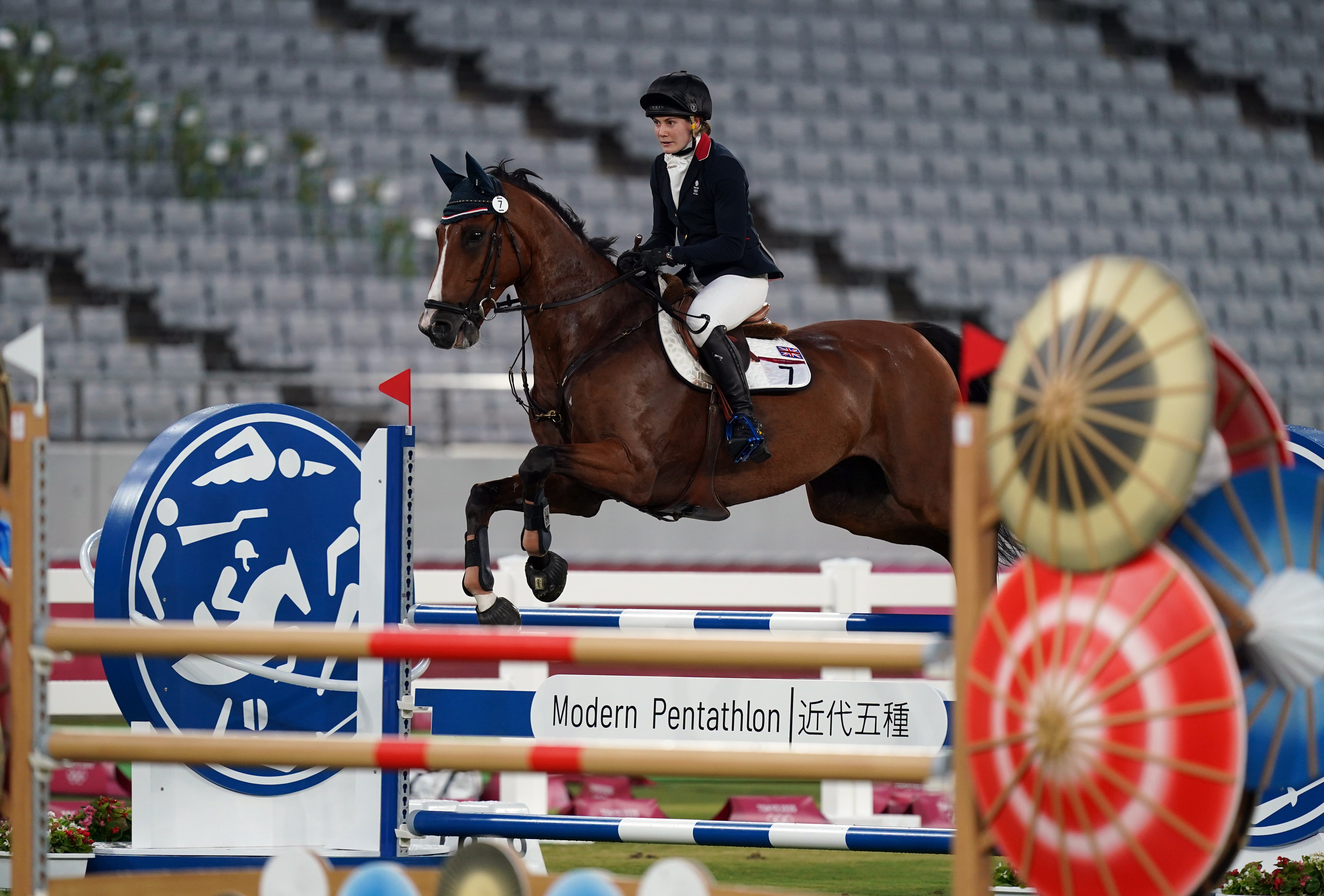Modern pentathletes concerned over plans to scrap horse-riding element
The UIPM’s decision – set to be formally announced on Thursday – comes following criticism during the Tokyo 2020 Olympics

Your support helps us to tell the story
From reproductive rights to climate change to Big Tech, The Independent is on the ground when the story is developing. Whether it's investigating the financials of Elon Musk's pro-Trump PAC or producing our latest documentary, 'The A Word', which shines a light on the American women fighting for reproductive rights, we know how important it is to parse out the facts from the messaging.
At such a critical moment in US history, we need reporters on the ground. Your donation allows us to keep sending journalists to speak to both sides of the story.
The Independent is trusted by Americans across the entire political spectrum. And unlike many other quality news outlets, we choose not to lock Americans out of our reporting and analysis with paywalls. We believe quality journalism should be available to everyone, paid for by those who can afford it.
Your support makes all the difference.Leading modern pentathletes are considering direct action in a bid to resist radical changes to the sport which appear to have been rubber-stamped by its world governing body.
Top stars have converged on social media channels to discuss their options after becoming exasperated by the UIPM’s decision – set to be formally announced on Thursday – to scrap its horse-riding element following criticism during the Tokyo 2020 Olympics.
It is understood one of the prospective options being discussed is a no-confidence vote in the executive board, whose available members voted unanimously in favour of the change during a meeting earlier this week.
But more direct forms of protest are also being mooted and would not be unprecedented in the sport. Athletes forced the cancellation of the 2014 World Cup event in Acapulco after refusing to proceed with the equestrian element due to the poor condition of the horses, although the official reason cited was extreme heat.
Olympic champion Joe Choong is among a growing number of leading figures, including previous British medallists, to go public with their concerns, amid an increasing belief that the governing body is no longer fit for purpose.
Kate Allenby, a bronze medallist at the Sydney 2000 Olympics who has stayed in the sport as a trainer, said: “My confidence in them (the UIPM) is disappearing by the bucket-load. If they are making these kinds of decisions, I’ve got no confidence in them at all.”
Allenby accused officials of leading a “clandestine” campaign to purge the sport of its equestrian element, which she says has been neglected for a number of years, leading to the shocking scenes in Tokyo which culminated in German coach Kim Raisner being sent home for punching a horse, Saint-Boy, whose refusal eliminated leader Anika Schleu from the competition.
“You’ve got to look at what they’ve done historically and how they’ve disregarded the riding and the welfare of the horses and the safety of the athletes, and how they’ve tinkered with it so much that it’s devalued the riding and not got riders into the saddle enough to be able to do the job,” Allenby added.

London 2012 silver medallist Samantha Murray was leading the Acapulco World Cup and had no regrets over the athletes’ collective decision to force its abandonment, intimating that a similarly strong sentiment exists today.
“They were awful scenes at Tokyo 2020 and something needed to change,” Murray told PA. “But the UIPM has known equestrian has been of a very poor standard for years and has done nothing about it.
“We went all the way to Mexico for the World Cup in Acapulco in 2014 and we boycotted it because the horses were totally incapable. We sat and protested and the officials tried to make us compete, and in the end it was scrapped.
“Everybody is up in arms about what is going on. The athletes want to know why they haven’t been consulted and why their voices haven’t been heard.”
Both Allenby and Murray concur that the answer lies not in axing the horse-riding element, which is integral to the sport’s origins, but in raising standards, impelling a higher level of riding through increased opportunities, and changing the format, including how horses are paired with each rider.
“It’s madness, and it undermines the meaning of the sport,” added Murray, who proceeded to mock reports – since denied by the UIPM – that horse riding will be replaced by cycling: “It’s based on the story of a soldier, and soldiers don’t really ride bikes.
“Tokyo was a joke, and someone has panicked and made a decision that ruins the values and the legacy of the sport and the story of Baron Pierre de Coubertin.”